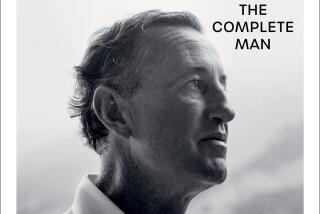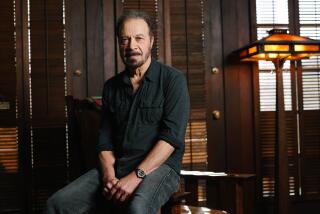The Shakespeare authorship question isn’t settled
As the screenwriter of “Anonymous,” the Roland Emmerich film about the Shakespeare authorship question now in production, I read with great interest James Shapiro’s April 11 Times Op-Ed article, “Alas, poor Shakespeare.”
I was particularly fascinated by Shapiro’s claim that U.S. Supreme Court Justices William J. Brennan Jr., Harry Blackmun and John Paul Stevens ruled “unanimously for Shakespeare and against the Earl of Oxford” in a 1987 moot court case.
Shapiro has, at best, oversimplified the facts.
In fact, Brennan, the senior justice on the case, did not rule on whether Shakespeare actually wrote the plays; he simply ruled that the Earl of Oxford did not meet the burden of proof required under the law.
Blackmun agreed, but then added, “That’s the legal answer. Whether it is the correct one causes me greater doubt” (emphasis mine).
Stevens went even further, saying: “I have lingering concerns. . . . You can’t help but have these gnawing doubts that this great author may perhaps have been someone else. . . . I would tend to draw the inference that the author of these plays was a nobleman. . . . There is a high probability that it was Edward de Vere [the Earl of Oxford].”
I would hardly characterize these as opinions “unanimously for Shakespeare and against the Earl of Oxford.”
Shapiro goes on to suggest that the justices “obviously” found against Oxford because he “died in 1604, [and] he could not have written . . . 10 or so plays.”
In fact, historians do not know the precise dating of any of the plays; they only make best guesses. And entirely opposite to Shapiro’s claim, Stevens actually stated that he was “not persuaded by the evidence on dating of the plays, because this is sort of a self-generating thing, where some of the dates were established on the assumption that Shakespeare was in fact the author.”
Shapiro claimed that our film does a disservice to Shakespeare’s legacy and devalues his imagination.
Now, setting aside the fact that we haven’t yet finished shooting our film (and one must therefore assume that Shapiro hasn’t seen it), I would say our film aspires to do quite the opposite.
Finally, I would ask Shapiro the following: Does he really think so little of the 37 plays and 154 sonnets -- and the genius who wrote them -- that he believes one film could possibly destroy their 400-year-old legacy?
I would respectfully suggest no. That legacy is quite safe, whoever wrote the plays.
John Orloff is the screenwriter of “Anonymous.”
More to Read
A cure for the common opinion
Get thought-provoking perspectives with our weekly newsletter.
You may occasionally receive promotional content from the Los Angeles Times.






